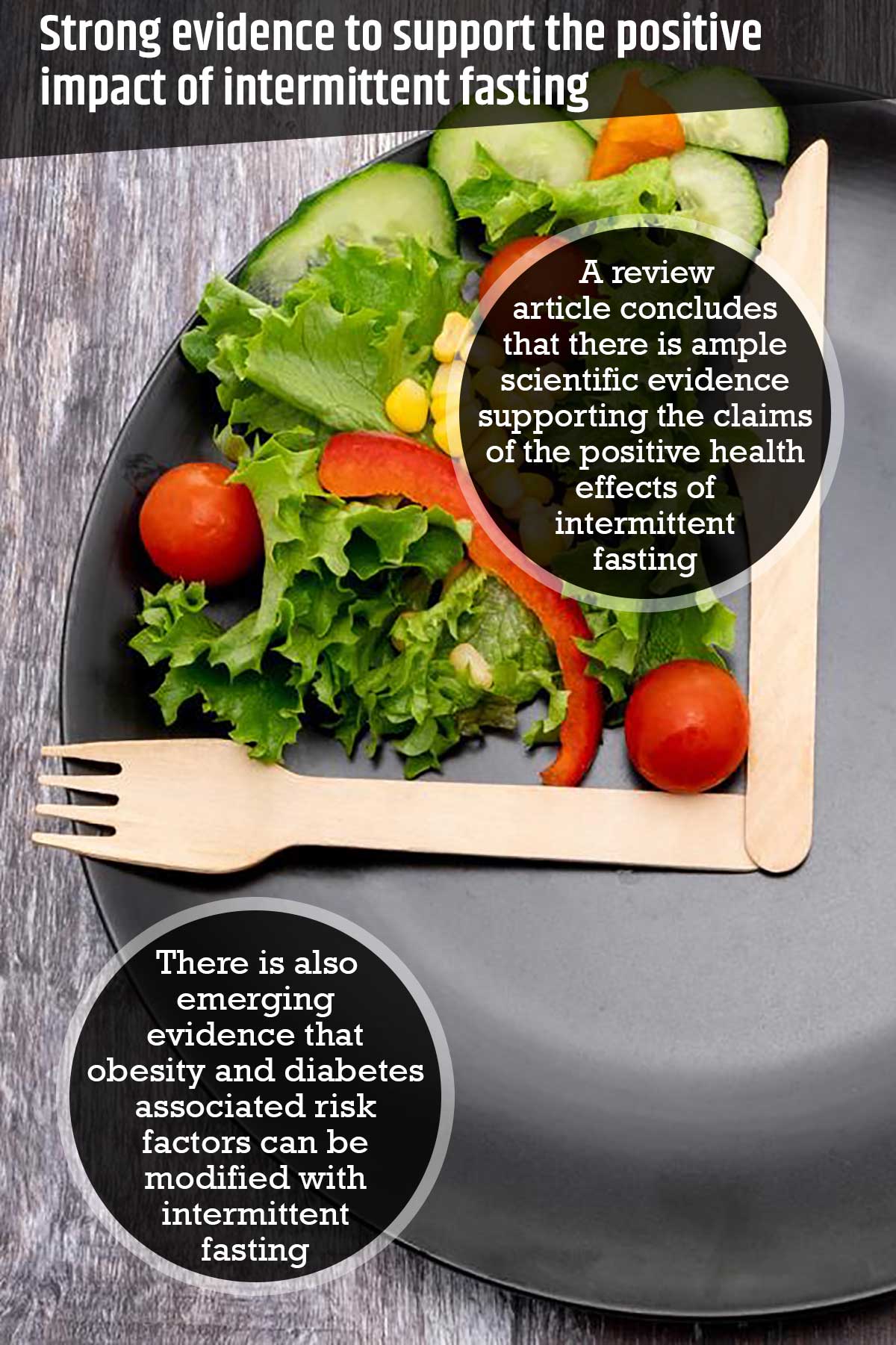A review article concludes that there is ample scientific evidence supporting the claims of the positive health effects of intermittent fasting.1✅ JOURNAL REFERENCE
DOI: 10.1056/NEJMra1905136
The author of the review, neuroscientist Mark Mattson, who adopted intermittent fasting himself approximately 20 years ago and has been studying the impact that intermittent fasting has on health for 25 years, declared that it can be part of a healthy lifestyle.
According to Mattson, intermittent fasting diets usually fall into 2 categories: daily time-restricted eating, which limits feeding times to 6-8 hours a day, and the 5:2 intermittent fasting diet, which limits eating to 1 moderately sized meal twice a week.
A collection of studies have demonstrated that cellular health is supported by alternating fasting and eating times, probably by activating metabolic switching, an age-old adjustment to periods of food scarcity.
Such a switch happens when sugar-based fuel stores which are rapidly accessible become depleted, and cells start to convert fat into energy metabolically slower.
Research has revealed that this switch suppresses inflammation, resistance to stress is increased and blood sugar regulation is improved.
Some studies also found intermittent fasting decreases blood pressure, resting heart rates and blood lipid levels. Most of us don’t experience the switch and the mentioned benefits due to the fact that we eat 3 meals plus snacks every day.
There is also emerging evidence that obesity and diabetes associated risk factors can be modified with intermittent fasting.
Two studies have revealed that overweight women following the 5:2 intermittent fasting diet shed the identical amount of weight compared to women on a calorie restricted diet, but had better insulin sensitivity measures and reduced more belly fat compared to the women on a calorie restricted diet. It has also been suggested that intermittent fasting could benefit health of the brain.
Although the exact mechanisms of metabolic switching are not fully understand and despite the fact that the intermittent fasting regimens are not always easy to adhere to, most individuals can incorporate intermittent fasting into their lives.
It can take a while for the body to adjust, and to get past the hunger pangs that come with intermittent fasting. Being irritable and hungry is common initially but typically passes after 2 – 4 weeks as the brain and body become accustomed to the routine.



